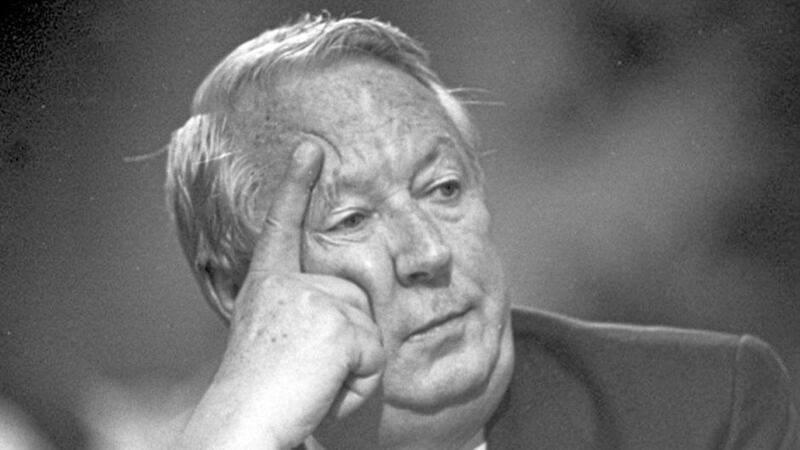THERESA May nearly had a good point. She claimed that ex-British soldiers have been unfairly targeted by legacy investigations here, compared to former paramilitary members.
This is untrue, but she would have been correct to say that British soldiers are being unfairly targeted compared to British officers and their political masters.
The British class system has not gone away you know, but Mrs May chose to ignore it. Instead, she joined in standardised sectarianism, which is based on the claim that the other crowd are getting a better deal than us.
The real injustice in legacy investigations into the British army is that they appear to ignore those with political and military power and concentrate instead on what we might call the dispossessed in the lower ranks.
The same appears to apply to the IRA and loyalist groups. If the army has a class system, paramilitaries appear to have a caste system. Some, particularly in the higher ranks, appear untouchable.
Overall, the legacy investigations here into both sides appear to be more about power and influence than justice and truth.
So where, you ask, is the evidence for such a fanciful theory? We can start with Bloody Sunday, for which 18 soldiers are under investigation.
But soldiers are trained not to act on their own initiative. While officers are taught to think in straight lines, soldiers have the thinking beaten out of them during training.
The last thing an army needs is a thinking soldier. Debating the morality of war is no help when facing the enemy.
The British soldiers who shot the civil rights marchers were either obeying or disobeying orders. If they were obeying, those who gave the orders should also be subject to criminal investigation.
If they were disobeying, they should have been disciplined and if they were not, their superiors should be investigated.
The shootings were the result of what was essentially a political decision, which can be traced to Edward Heath. But during the Saville inquiry into Bloody Sunday, Heath refused to answer more than 50 questions.
The Inquiry chair even threatened to expel Michael Lavery QC, who represented the majority of the victims' families, for the manner in which he questioned Heath.
Police never investigated his role in Bloody Sunday - although they now say that if he were still alive he would be investigated for suspected child abuse - but rank and file soldiers may face criminal prosecutions for implementing his policy.
In view of Saville's findings, why was no-one charged with perjury at the discredited Widgery Inquiry, which is also believed to have been largely influenced by Heath? Why was Mrs Thatcher's role not investigated in the increased number of British army killings when she came to power?
Why has no British intelligence handler been charged in connection with the 18 murders carried out by Stakeknife, while working for the British government?
The answer is that those in authority are above the law, even in paramilitary organisations. Although IRA members are still eligible for early release if convicted of offences committed before April 1998, an elite group of 187 members were told by the British that they would not face prosecution. Who in the IRA selected them and how?
Did the IRA leadership give themselves immunity first and then hand-pick their friends? Whatever the truth (and we shall never find out) there was favouritism of some sort, isolating those who were, or became, the dispossessed.
When the British government agreed to this scheme, were they selectively using the law for political purposes? Does that warrant a criminal investigation?
More than 2,500 former British soldiers were jailed last year, an inevitable consequence of the state's failure to care for their mental and physical health.
Over 10 per cent of rough sleepers in Britain are ex-soldiers. If there is one thing more dispensable than a soldier, it is an ex-soldier.
The latest British army recruitment campaign targets working class young people, described as social classes 'C2DEs', the most deprived sections of society with an average annual household income of £10,000. Let the poor do the dying.
Ira Hayes, one of the US marines who raised the iconic flag on the Pacific Island of Imo Jima, died an alcoholic, ignored by the US government. Kieran Hughes, the first hunger striker, spent his last days in a similar manner, abandoned by the IRA.
The evidence of police investigations to date here suggests that politicians and officers, appointed and self-anointed, run no risk of prosecution because the real division in legacy issues is between those who fired the shots and those who ordered them to do it.









